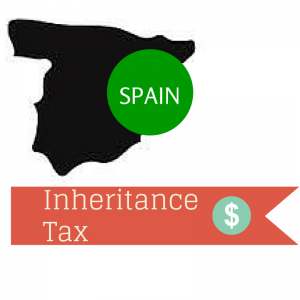LOWER TAXES ON GIFTS IN ANDALUSIA

On 9 April, the Andalusia Council approved, through a Decree Law, an amendment of the tax on inheritance and gifts, which, in particular, entails great tax savings in terms of the tax on gifts. This legislative amendment introduced a bonus of 99% of the tax liability due in inheritance and gift tax, that is to say only 1% of what was previously paid would be due.
Needless to say, the Tax on inheritance and gifts is devolved to the different Autonomous Communities that make up Spain so this bonus is the one in force in Andalusia. But, depending on the location of the property or residence of the recipient (for movable assets) –the person receiving the asset–, legislation will be different on the matter of inheritance and gifts.
Example: A father gifts his son 200,000 euros
With the previous legislation, the tax liability on this gift would have been 31,621.21 euros, which meant that the son would have had to pay 31,621.21 euros in taxes after receiving this money from this father. With the new regulation, this tax liability of 31,621.21 euros can benefit from a bonus of 99%, which means that, now, the son would pay a tax of 316.21 euros. Without a doubt, it represents huge tax savings. When money or other moveable property is donated, the applicable regulation for this purpose will be that of the residence of the recipient.
Who can benefit from this bonus on the gift tax?
Those people included in groups I and II established in the regulation governing this tax can benefit. This means that the recipient must be the spouse, child, grandchild or parent of the grantor; the person who gives away the asset.
What other requirements need to be met for gifts in Andalusia?
Besides being included in groups I and II mentioned above, it will be necessary for the donation to be made effective in a Public Deed before a Notary and, if money is gifted, its source must be justified. In case of donating a property, this Deed will be used to inscribe the property in the new name of the new owner in the Land Registry.
What happens with the Capital Gain Tax and Plusvalia?
From the perspective of the tax on gifts, there is no problem with a parent donating a property in Andalusia for the child to apply the 99% bonus and pay a very small amount for the tax on gifts. The problem in the case of properties affects the grantor because, even if the property is gifted, the Tax Agency equates that transfer to the sale of the property –for the Treasury, there is no difference between donating and selling–. For this reason, the grantor must pay Capital Gains Tax calculated on the difference between the original value paid in the purchase of the property and the value of the property when gifted.
It is important to note that if the grantor is a tax resident in Spain, over the age of 65 and gifting their habitual residence, no capital gains tax would be paid for gifting or selling the property.
Lastly, as the city where the property is located also interprets a gift as a sale, it will ask for its piece of the pie in the form of capital gains tax – Plusvalia in Spanish-. This local tax is calculated according to the number of years that the grantor has owned the property, with a maximum of 20 years, and is paid on the increase in value experienced by the plot/land of the property.
What if I value the property at a low price to pay less tax?
You may be tempted to set a very low value for the property gifted and thus pay less Capital Gains tax when it is gifted. This is perfectly understandable but it is very important for this value not to be below the minimum taxable value, which is the taxable value that the Treasury deems properties in Spain to have. That is to say, the value of the property being gifted should not fall below the minimum taxable value to prevent an inspection by the Tax Agency. The minimum tax value in urban properties is based on the cadastre value of the property multiplied by a factor that varies from town to town.
Does this bonus apply to everyone, regardless of whether they are resident in Spain?
As explained in several previous articles, the most recent from March, different judgments have ruled that both residents of the European Union and residents of third countries must be treated the same as residents in Spain for the purposes of the Tax on Inheritance and Gifts. Based on this, anyone who meets the requirements explained in this article can benefit from the 99% bonus in Inheritance and Gift Tax introduced in Andalusia or any other regulation of the relevant Autonomous Community.
Example of a property being gifted
Let’s imagine a Swedish homeowner who bought a property in Almuñécar (Granada) for 200,000 euros and decides to gift it to his son who lives in China, with the current minimum taxable value being 300,000 euros. Since the home is in Andalusia, the son-recipient can benefit from the 99% bonus in the tax due and would only have to pay 554.68 euros for the tax on gifts, of the total tax amount of 55,466.81 euros.
Since the father-grantor obtained capital gains of 100,000 euros from the gift, he will have to pay capital gains tax on this 100,000-euro “profit”, which currently stands at 19% of net profit (after certain possible deductions). However, as the owner is 64 years old, resident in Spain and is gifting his habitual residence, we recommend that he waits until he turns 65 to avoid paying capital gains tax. The son will surely understand the reasons.
What happens to taxes where the recipient resides?
Before accepting a gift, it is important for the recipient to get information, from his or her country of residence, regarding which tax will have to be paid on this, if any. Lastly, it should be said that this amendment of the Tax on Gifts in Andalusia means that the construct of gifts may be attractive in situations where a couple wants one of the spouses to own 100% of the property –only for married couples under separation of assets– or if they want to leave the property to their children or grandchildren during their lifetimes. Previously, from the standpoint of tax savings in Andalusia, the only options were to terminate co-ownership or sell the property but now, with this new amendment, in many cases it will be better to gift it as more taxes will be saved on the transfer of the property.
Read more about the subject of selling your house in Andalusia in the video below:
Author: Gustavo Calero Monereo, lawyer at C&D Solicitors Torrox (Málaga, Andalusia)



















